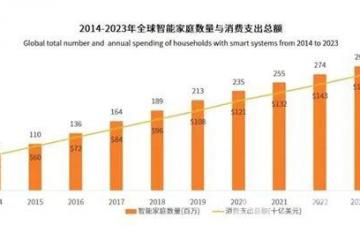wallstreetfrontline|petertuchman:cla-k8凯发真人
 发布时间 2024-06-04 01:05 来源:证券之星 阅读量:7236
当前位置:k8凯发真人 >> 要闻 > 内容
发布时间 2024-06-04 01:05 来源:证券之星 阅读量:7236
当前位置:k8凯发真人 >> 要闻 > 内容
 发布时间 2024-06-04 01:05 来源:证券之星 阅读量:7236
当前位置:k8凯发真人 >> 要闻 > 内容
发布时间 2024-06-04 01:05 来源:证券之星 阅读量:7236
当前位置:k8凯发真人 >> 要闻 > 内容
after stock market strong gains in may, all three indexes have shown some volatility. in the week ending on may 31st, all three major indexes recorded losses for this week. investors on the wall street start to worry that rising volatility might signal a slowing of the market rally.
on the other hand, nvidia has garnered significant attention. the stock has been hitting new heights following the release of its earnings reports, reaching a market value of an impressive $2.72 trillion, just shy of the top spot held by apple, at $2.93 trillion. nvidia’s ceo jensen huang's net worth has surpassed a $100 billion for the first time, placing him 15th on the global billionaire list. on the last trading day of may, nvidia’s stock price fell but remained near a record high as it approached apple’s market cap.
today, we invited peter tuchman, trader at new york stock exchange, to join us to talk about the recent trends in stock market and the future of nvidia.
wall street frontline: can you give us an overview of this week’s stock market? what are the highlights? what has happened?
peter tuchman: absolutely. look, it's been a wild and crazy week. obviously, we've had a really reasonable may. you know, a lot of the movement in the market has been fueled by a lot of nvidia and nvidia earnings. it was a big part of the last couple of weeks. and there's been a lot of big follows through as far as that goes. we've seen a nice rally in the russell, the small-cap, mid-cap. so that shows the breadth. we had a 1% rally yesterday. advanced declines were in a solid position. so that shows a broader breadth to the rally.
although we have had a couple of down days in the dow, which is a less significant index, right? because there was very one or two stocks going down 9% one day. there were a number of other names that took that one down. but you know, there's the old adage, sell in may and go away. that was not the case this month. may was a super solid month. we had good earnings. so, we forged higher.
there was a lot of question whether the interest rate story is gonna to be clear, you know, whether they are going to have one cut, two cuts, whether they're in fact, maybe even be a raise. so, they didn't know that. so , there was a lot of dissent among the ranks within the fed about clarity to us as investors, what they plan on doing. so, the couple of bumps in the road that we had during may were a function of that. but you know, for the week, we ended the week up solid. it is the end of the month, right? and that's significant.
today was the msci global rebalance. that is a massive global index rebalance of 3,000-5,000 plus stocks. the largest global rebalance we have. and i traded it all day and we ended up posting $4 billion to buy. and that was a contributing factor to this massive rally that we had at the end of the day. i thought after a reasonable month, that we all gonna have a bit of a selling side on the close, people taking profits.
but it turned out that the enthusiasm for the market, whether it was some short covering, people sort of thinking that we were going to go down by the end of the day. or the buy interest and the buy dollar notional value that came in in the last hour and a half of trading was significant. rally the dow up 500. the samp;p up 46 handles in the last 15 minutes of trading.
wall street frontline: so, everybody's talking about nvidia, as you just talked about, right? obviously, it's the star here. so how are traders at new york stock exchange reacting to nvidia’s rapid ascent?
peter tuchman: we don't trade nvidia here. it's a nasdaq stock. but if you just listen to me, look, i do a lot of work with dan ives. dan ives is the number one tech analyst in the world. in my opinion, we have a show together called einstein and ives. he's my go-to guy about nvidia. and he's a lot smarter than i am. and he knows tech better than anyone. he's been touting and pounding the pavement about nvidia for a long time.
look, we watched nvidia go in february 2023. it was trading at $108. in february 2024, it was trading at $960. that's a spectacular move. that really points at a major revolution in the tech sector. trillions of dollars are going into that sector in a big way. and best of breed, the godfather of ai, jensen, ceo of nvidia, is leading the pack. so that's been huge. but then think about it. we ended the first quarter, best first quarter we've had since 2019. april was a bit of a rough month. we actually saw nvidia go from $960 to $735. now, while people started running for the hills, like, oh my god, it's the end of the world. the press, the media sort of talks about recession, depression, and all this. people should have been sitting there with a shopping list. and looking and realizing that nvidia was not going down. it was just on sale for the month of april. and if they had bought the stock, liking the story, the people, the process, the product, right? that's what people do. nothing changed overall in april about nvidia. it was just the market. so they missed an opportunity.
but we saw the stock rally from $740 until $946 on the day of the earnings, right? the earnings came out. they blew it out of the water. and after the close of the market, when the earnings were released, it rallied another hundred points. and we've seen rallies day after day after day since then. i believe it got as high as $1,180. so that shows that the enthusiasm is continuous. the story is a big story. they are the best of breed. there is a secondary and tertiary derivative, which means that the effects of nvidia on other companies, the overflow into the microsoft, the amazons, the googles, the other people in the ai space are going to be huge. and that's going to be the third and fourth inning. but we are in the beginning of the game when it comes to nvidia.
wall street frontline: daniel ives, he always told us, right now, it's like the 1995 moment.
peter tuchman: and not a 1999 moment. it's a great line. so, your audience understands what he means is that in 1995, it was the beginning of the growth of the internet. in 1999, it was the burst of that bubble. so we're not talking about a bubble burst here. we're talking about a foundational growth with a lot of legs on it and a really good long-term story.
wall street frontline: so what are the main factors driving the rapid growth of nvidia?
peter tuchman: that's not my specialty. the bottom line is, obviously, it's chips. it's ai, the robotics of the world. they are the best. and all the other companies that are trailing in that space are going to need nvidia to get the exposure they need. so it's not only in itself an amazing company with great products, but it is going to be the motherland of all the other stocks as second and third derivatives in that sector.
wall street frontline: while nvidia has been, saying like a great significant gains in may after its earnings reports, other big technology companies like alphabet, like tesla, they have been down for a while. so what has caused this divergence between nvidia and other magnificent 7 companies?
peter tuchman: look, they've got other issues going on. i would think tesla, obviously, tesla had a bit of a rough patch. it's had a rough patch and for a number of reasons. you know, at the last earnings report, even though the stock earnings were quite poor, right, they were able to dangle a little bit of a carrot talking about that they were going to get the auto cars green light in china. and then they said that they're going to be fast forwarding a number of the electronic vehicles here in the states. the stock was oversold, way oversold, net for the year. and that's why it rallied. but the story is always overshadowed by the wild card of elon musk, i think. and the other problems that the electric vehicle sector has had, you know.
as far as google and some of the other names, they've had ok runs. they are not nvidia. you know, we are seeing that within a sector. they are secondary and tertiary derivatives of the ai game. and the only pure ai play is nvidia. and since ai is where everyone is putting their money and their hope for the future, that's why nvidia is best of breed. and the rest of them have had an ok time. but they're the ones, if you're going to sell, you're not going to sell best of breed. you're going to sell the third and fourth guy down the road.
wall street frontline: as we enter into the second half of 2024, because today is the last trading day, may 31st, did you notice any notable sector rotations or shifts?
peter tuchman: as i said, the russell 2000 yesterday rallied one or two percent, even though the market itself was down. and so that's a mid-cap, small-cap rise in a big way. i'm not trading a sector, you know, i trade the samp;p. that's my specialty. and i will hyper focus things that have a lot of particular interest to me. i think there's a broad-based rally going on that's signified by the russell. obviously, tech is still hot. and obviously, nvidia is the best of breed. i think the broad-based rally that we've seen in may is significant going forward.
we've got another month. the clarity that we need to get from the federal reserve about whether we will have one cut or no cuts or a small raise, which is a data-driven decision, we don't know the answer. today, the pce number came out. it was not a good one, but it was not something we didn't expect. markets can accept anything as long as their expectations are not disappointed. and we were told it was going to be plus 0.3. it came in at plus 0.3. so we were given what we were promised.
if there's any kind of a look, look what we saw in dell yesterday, right? dell had the slightest bit of disappointment. and the stock was not down 2 or 3 or 5 points. it was down 20%. so this market is not very forgiving. when everybody has had such a huge profitary run in all of these names, the market is up, trading at record highs. so there are very few stocks that are not up, right? so that when you have any inkling that there's something negative going on, they just sell it with abandon. it is not a very forgiving stock market. if you hit it, they love you. if you miss on anything, they're going to sell the living heck out of it. so i think the market tells us that june, we're at the crossroads here.
monday will be the first trading day in june. some fresh money will come into the market, but clarity out of the fed will be very important as to what their plan is going forward. i believe there's a 70% chance of a cut in september that may be already negotiable. i don't know about that. but, you know, we have the election. we have mr. trump being convicted. we've got all these moving parts. will that have an effect on it? probably not. and elections overall don't really affect the stock market at all and rarely ever have. but i think we're at a crossroads. so i don't know what the next move is. we're either going to hit up against some technical resistance and the market's going to consolidate for a little bit, or we're going to build another formal rally and go higher.
wall street frontline: so recently the market has been very volatile, right? the volatility is kind of high. so what has caused this kind of volatility?
peter tuchman: well, the volatility is coming from all these moving parts. a lot of it came from the fed. the fed has not given us a clear message for months now. we came into the year with seven cuts and then we got cut down. then the economic data showed us that we were not there. and then jay powell said, “i'm not going to pay attention to that negative pci and cpi number”. and then, you know, the other governors told us one thing and he told us another thing. and then you had these mixed messages and everybody's giving news conferences in the middle of the week.
so the market was skittish around the whole interest rate story. and then the economic data that came out was disappointing. and so then you went from three cuts, two cuts, one cut. then we said, oh, my god, we actually may not be able to support a cut right now at all. and so we actually even discussed for a few weeks that we may even have to bump it back up into a raise. so that kind of lack of transparency. look, it's no blame on the federal reserve. their decision-making is database. the data changes all the time.
so for me, the analogy i use is like if you wanted to lose weight and go on a diet and you wanted to lose 35 pounds, right? and you decided to do paleo and keto and all this other stuff. and you lose the first 30 pounds. it's very easy to lose. it's just water. but the last five pounds is very difficult to lose.
wall street frontline: so it's like the last mile of inflation.
peter tuchman: exactly. we went from 8.5% inflation to 3%. we made that. we did it well. the tools worked.but this last 1%, that trajectory. it's so hard to make it. we're not going to get there the way we got down the first 5%. it's going to take a little while, some patience. the market's got to marinate right here. so i think we're going to see consolidation, marination, all kinds of fun stuff.
出品:南方财经全媒体集团
策划:于晓娜
统筹:向秀芳
制作:段伊航
设计:林军明 廖苑妮
免责声明:该文章系本站转载,旨在为读者提供更多信息资讯。所涉内容不构成投资、消费建议,仅供读者参考。
 向新而行|第21届青
向新而行|第21届青
 以“高质量”为引擎,智能家居产业怎
以“高质量”为引擎,智能家居产业怎 装智能家居没有零线怎
装智能家居没有零线怎
 封阳台的看过来!别人家的大美阳台,
封阳台的看过来!别人家的大美阳台, 原来大多业主都在悄悄
原来大多业主都在悄悄
 智能家居为什么从“伪需求”变成了“
智能家居为什么从“伪需求”变成了“ 智慧升级与绿色低碳同
智慧升级与绿色低碳同
 roca推出荣誉一体式智能座厕,升
roca推出荣誉一体式智能座厕,升